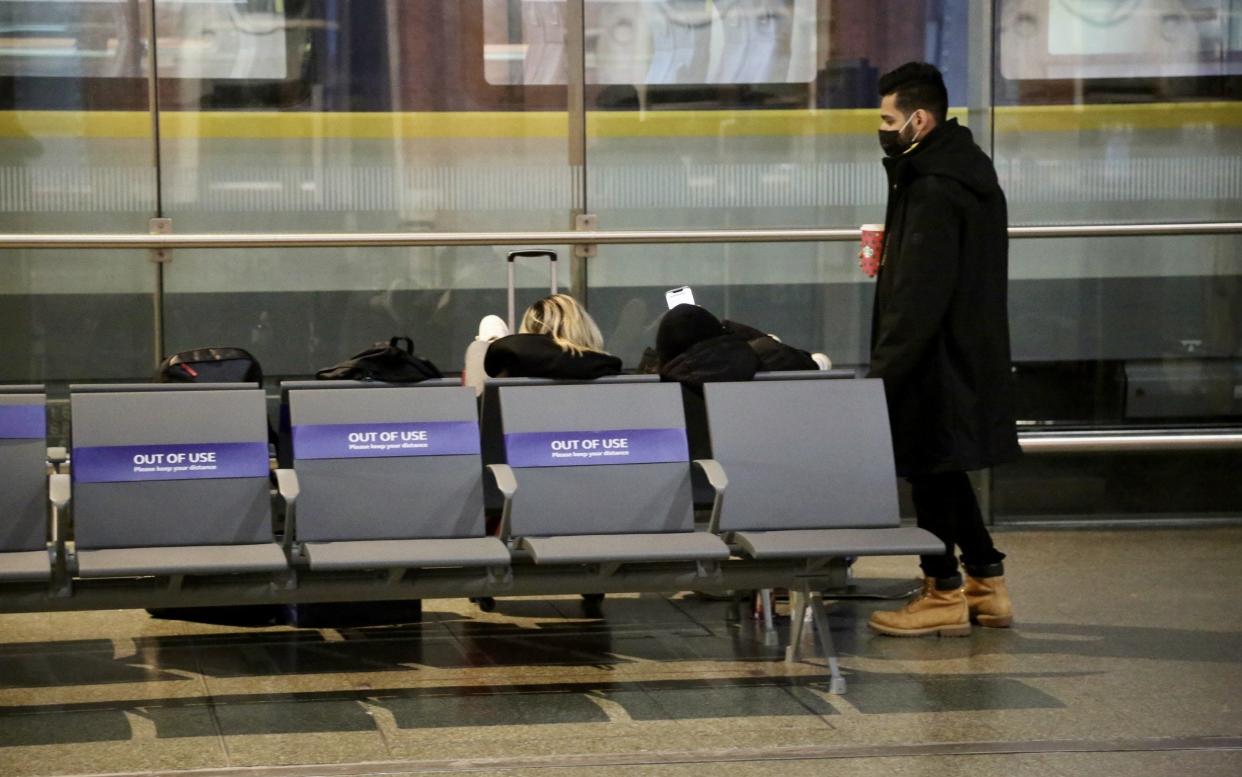Italy detects patient with new Covid strain as EU fears mutation will explode across Channel

Italy has detected a patient infected with the new strain of coronavirus that was found in Britain, the health ministry said on Sunday night.
The patient and his partner returned to Italy from the UK in the last few days on a flight that landed at Rome's Fiumicino airport and were now in isolation, the ministry said.
It came as the European Union was scrambling to unify its response to the strain that has seen countries close borders ahead of the Christmas holidays.
The 27-member bloc will hold a crisis meeting on Monday in an effort to coordinate the travel restrictions and avoid the spread of the new strain, which may be up to 70 per cent more transmissible than its predecessor and may already be present in several countries.
Travel and freight restrictions already imposed by Germany, France and the Netherlands could be extended to the entire union and countries are discussing a joint response over sea, road and rail links with Britain, according to a German government source.
The border closures come weeks before a deadline which could see the UK leave the EU without a trade deal, compounding challenges in the transport of goods and people.
Germany, which holds the rotating EU presidency, invited EU members to a crisis meeting to unify the response.
“On the agenda: EU coordination on the response to the newly identified Covid-19 variant in the UK,” Sebastian Fischer, a spokesman for Germany’s EU presidency, wrote on Twitter.
The regional group has so far managed to coordinate its response to the virus, with collective border closures over the summer and a programme in which the European Commission secured more than two billion doses of vaccine to be shared across members.
Talks were held on Sunday between Emmanuel Macron, the French president and Angela Merkel, the German chancellor, as well as Ursula von der Leyen, the president of the European Commission, and Charles Michel, the European Council president.
The talks follow an alert from Britain to the World Health Organisation over the variant, which may be up to 70 per cent more transmissible.
Germany’s health ministry said the mutation had not yet been detected in the country and sought to reassure the public that vaccines would be effective.
The WHO called on all its European members to step up prevention measures in the face of the new variant. Outside Britain and Italy, cases have already been reported in Denmark, the Netherlands, Belgium and Australia.
Spain said it had asked the European Commission and the European Council for a coordinated response, but would move on its own if necessary.
France’s travel ban on Britain will last for an initial 48-hours to agree on a new testing regime in collaboration with EU partners, the French prime minister’s office said.
“This will allow us to work with our European counterparts to build a solution for the transport of people and goods,” said Jean-Baptiste Djebbari, the French transport minister.
There is no evidence the new strain is more deadly. But the increased speed of transmission “would increase the likelihood of spread, particularly if increased family and social mixing that is traditional at this time of the year is not reduced”, warned the European Centre for Disease Prevention and Control.

